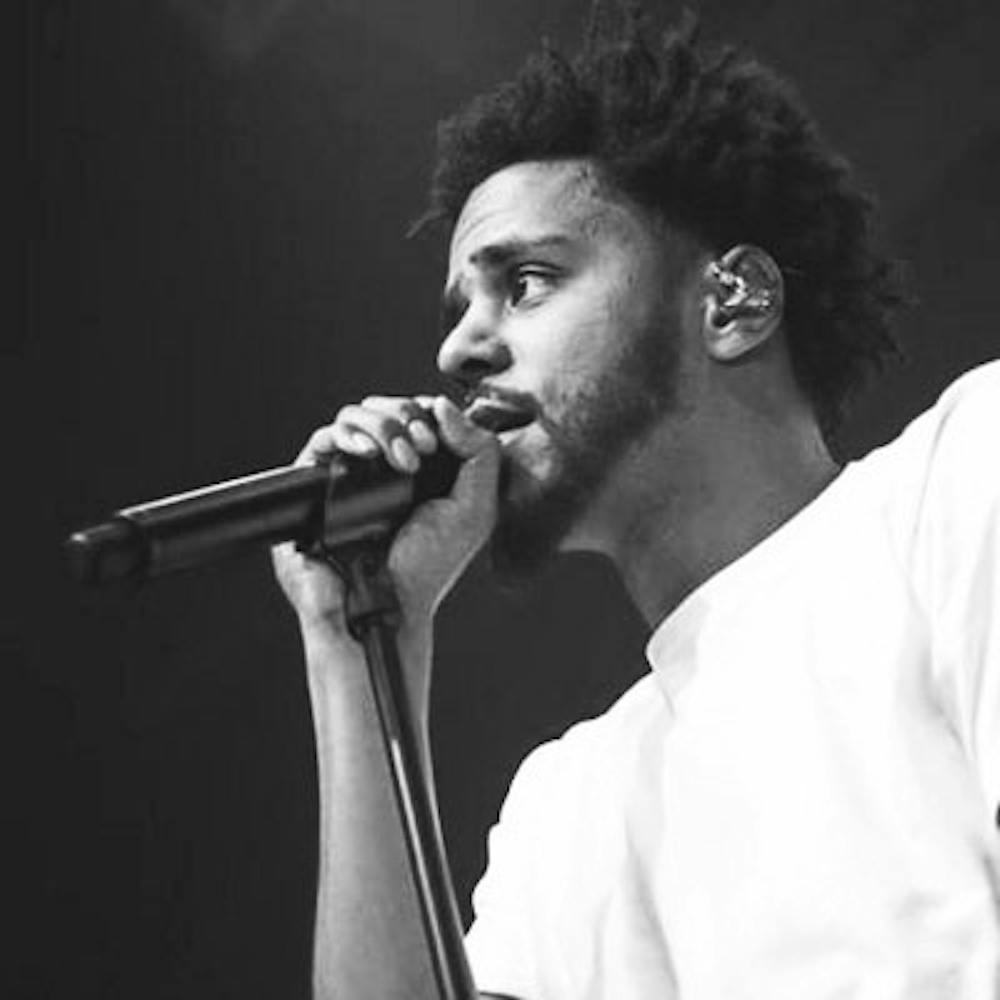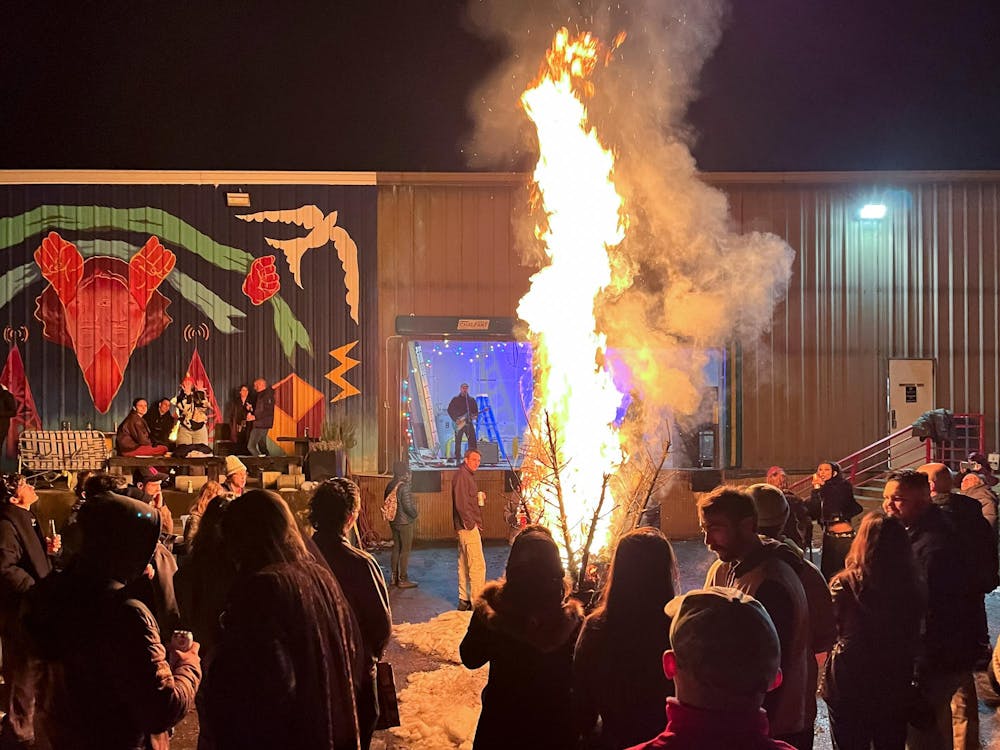When the lights first dimmed at J. Cole’s show Saturday evening, John Paul Jones Arena was packed with first-years. After the obligatory dorm room string-lighting were hung, collages compiled and unnecessary furniture assembled, whole halls successively made their entrances into the stadium, often in chains of 20 or 30.
The crowd was treated to a few hefty opening acts. Dj Nitrane tantalized them for an hour by intermittently asking, “Are you ready for J. Cole?” and then proceeding to spin another hit track. Nitrane’s set, which included tracks such as Kanye West’s controversial “Famous,” offset the feminism J. Cole’s lyrics often professed.
Following Dj Nitrane came Bas, a Queens-based rapper. Bas’s set was promising though uneven. Bas moved between catchy anti-drug anthems such as “Methylone” and songs with no clear meaning such as “Mook in New Mexico,” which shifted focus between self-aggrandizement, the definition of art and the Iraq War. Even Bas admitted about one of his song lyrics: “That line probably only makes sense to me.”
After Bas and a half-hour more of Nitrane came J. Cole, who greeted the audience with a rousing rendition of “Tale of 2 Citiez.” Most of Cole’s show came from his most recent album, “2014 Forest Hills Drive.” Cole acknowledged the acclaim his album had received, calling it “aight.” In between songs, Cole, seated on a chair occupying a white spotlight, would reminisce about his origins and days in college. The back-up band, though obscured by the lighting and a heavy mist, kept Cole’s show fresh by changing the accompaniments from Cole’s albums. “Hello,” for instance, was played with a reggae beat, and many of Cole’s monologues were accompanied by jazz improvisation.
A clearly literate rapper, Cole’s wordplay was hit and miss with lyrics such as, “Hey Cole heatin' up like that left-over lasagna,” but for first-time listeners, the live setting obscured most of Cole’s lyricism. The crowd still frenziedly rushed the floor when given the chance, even after Cole announced the floor was “cut the f—k off.” Perhaps this was for the best, as the meaning of many of Cole’s catchier songs would kill their mood. The thrill of the chorus to “No Role Modelz,” “she don’t wanna be saved, don’t save her,” for instance, is diluted when one considers the song's chilling description of urban poverty. The graphic detail of “Wet Dreamz,” too, was worthy of oversight for those of a delicate temperament.
If the intent of inviting Cole to the University was to give vulnerable first years an alternative to block party, then the event was a success. If the audience looked past the grit of his language, endemic to most rap music, Cole’s underlying messages offered much to take to heart with themes of the importance of community, responsibility and respect for women. All in all, the artist brought the Class of 2020 together on the floor with a dynamic performance and a thoroughly “aight” show.







